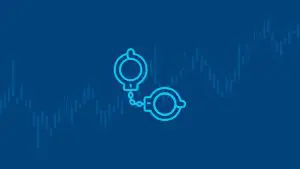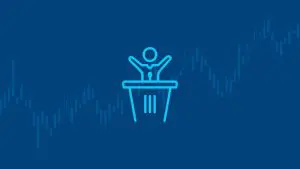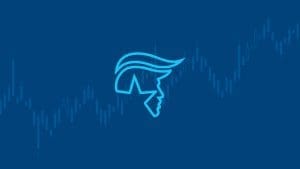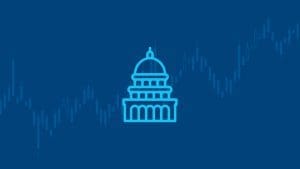On Thursday, Sept. 19, Kalshi and the CFTC argued before the United States Court of Appeals for the District of Columbia Circuit. The CFTC believed it had the authority to prohibit election markets while Kalshi believed the CFTC’s decision for a ban was “arbitrary and capricious.” Thursday’s hearing consisted of oral arguments that would decide whether the CFTC would get a stay preventing Kalshi from offering its congressional control contracts.
Kalshi offers event contracts on other events like adverse weather, Rotton Tomatoes rankings, and other non-election events. The platform offers some political events like whether 538’s approval ratings will reach certain levels for certain candidates and officeholders. Kalshi would like to offer markets on which party will control the House of Representatives and the Senate, but it has been blocked from doing so by its regulator, the Commodity Futures Trading Commission (CFTC).
Kalshi’s lawyer, Yaakov Roth, had to confront the fact that state laws saw fit to separate elections as separate events worthy of special events that cannot be gambled on. The reality that many people would be using Kalshi to do legal election betting could give the CFTC standing to treat election event contracts differently than contracts on the weather or Donald Trump’s tweets.
Kalshi also had to explain why it wanted to give the District Court time to consider its opinion but wanted a fast appeal. Roth claimed that the CFTC had to make an affirmative case that it had proof of election contracts being against the public interest. In Kalshi’s mind, the appeal case for an emergency stay seemed settled.
The CFTC’s best point was that any financial instrument it oversaw would require investigation. The CFTC’s lawyer, Robert Schwartz, noted that the CFTC can investigate companies that make false statements about their performance that could affect relevant markets.
If the CFTC oversaw election markets, then they would have to be able to investigate election interference rumors that could unduly influence Kalshi’s election markets. As financial and economic investigators, the CFTC can credibly claim to be poorly equipped to make those decisions.
Kalshi and judges spar on “gaming” definition
Kalshi began by arguing that their election contracts couldn’t be games because one of the defining features of games is that there aren’t economic consequences outside of a game. The judges disagreed. Whether a stadium moves to one state or another is a major economic contest.
The court of appeals judges were also skeptical of Kalshi’s arguments that their election contracts lacked “game” qualities. Many people would be willing to use election contracts as betting games instead of hedging tools. The judges also pointed out that gaming includes betting, a behavior that many Kalshi customers would engage in rather than hedging economic risk.
The judges also wanted to know how quickly short-term manipulation could be corrected. Roth answered that Polymarket’s took an hour or two. He also pointed out that Kalshi would not offer a market on another market like Polymarket offered in its manipulation example.
The judges challenged Kalshi’s lawyer on the CFTC’s argument that regulating election markets was outside of the CFTC’s traditional authority. The CFTC is meant to keep its exchanges commercial platforms rather than gambling platforms.
Kalshi’s counsel argued that its constant surveillance and know-your-customers regulations were designed to maintain Kalshi’s market integrity. Kalshi also argued that contracts on whether a CEO’s arrest for insider trading relates to a prohibited contract subject, but they’re still allowed to offer those event contracts.
The court of appeals judges also raised concerns about the traders that made up the market. The judges cited PredictIt’s increase in Trump’s price in 2020 after he lost the election due to enthusiastic fans. Kalshi and the judges sparred over the reliability of Kalshi’s contract prices.
Kalshi’s lawyer also revealed the metrics of Kalshi’s short-lived election markets. After being live for about eight hours, Kalshi saw about $50,000 in trading volume in its congressional control markets.
CFTC arguments struggle to name concrete harms from election betting
The CFTC struggled to prove to the court of appeals judges that election contracts inflicted concrete irreparable harm on the public interest. Comment letters from the CFTC opposing election contracts did not count as concrete findings proving harm.
Schwartz expressed concern that skewed election markets could create false impressions, potentially leading to unfortunate consequences. For example, a campaign could lose volunteers or misallocate resources based on inefficient forecasts from prediction markets. Prediction markets could also influence voter behavior.
However, the judges pointed out that voters can vote based on whatever information they want. So, prediction markets’ influence on voters couldn’t be a public harm the CFTC could use to ban election markets.
Schwartz cited a recent short-term manipulation attempt on Polymarket, where a group of traders artificially inflated Kamala Harris’ contract prices, making her the favored candidate for a three-hour window covered by a different market.
But the judges questioned how relevant a manipulation attempt on a three-hour window was to a binary outcome. Short-term manipulation is a greater danger in a market that’s settled based on prices over time instead of a yes-or-no outcome of a separate event from the market’s prices. The judges were skeptical that the Polymarket case was relevant to Kalshi’s congressional control markets.
Next steps
Kalshi and the CFTC are waiting for a decision whether the courts will grant a stay. A stay would prevent Kalshi from offering its election markets until the court makes a decision as to whether election markets are ultimately legal.
The next step is to wait for the appeals court’s opinion following Thursday’s oral arguments.


























